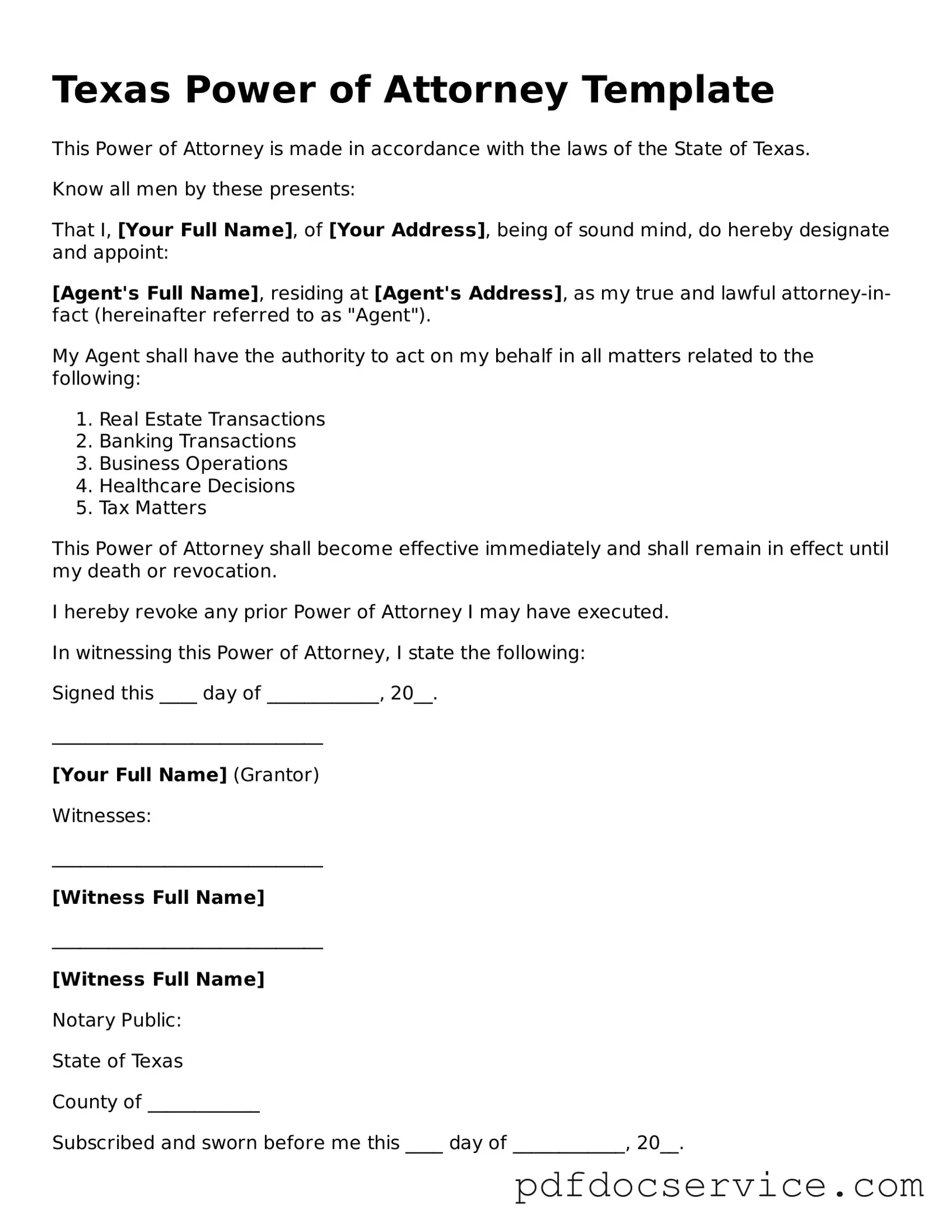What is a Power of Attorney in Texas?
A Power of Attorney (POA) in Texas is a legal document that allows one person, known as the "principal," to grant another person, called the "agent" or "attorney-in-fact," the authority to make decisions on their behalf. This can include managing finances, making healthcare decisions, or handling legal matters. The principal can specify the scope of the agent's powers, which can be broad or limited, depending on their needs.
How do I create a Power of Attorney in Texas?
To create a Power of Attorney in Texas, follow these steps:
-
Choose a trusted individual to act as your agent.
-
Decide whether you want a general or specific Power of Attorney.
-
Obtain the appropriate form, which can often be found online or through legal resources.
-
Complete the form, clearly stating the powers you wish to grant.
-
Sign the document in the presence of a notary public or two witnesses, as required by Texas law.
Once completed, provide copies to your agent and any relevant institutions, such as banks or healthcare providers.
Can I revoke a Power of Attorney in Texas?
Yes, you can revoke a Power of Attorney at any time, as long as you are mentally competent. To revoke, you should create a written revocation document that clearly states your intention to cancel the previous POA. This document should be signed and dated, and it is advisable to notify your agent and any institutions that received the original POA. Keeping a copy of the revocation for your records is also a good practice.
What happens if I become incapacitated and have not set up a Power of Attorney?
If you become incapacitated without a Power of Attorney in place, your family may need to go through a legal process called guardianship. This can be time-consuming and costly. A court will appoint someone to make decisions on your behalf, which may not align with your wishes. Establishing a Power of Attorney in advance can help avoid this situation and ensure that your preferences are respected.
Are there different types of Power of Attorney in Texas?
Yes, there are several types of Power of Attorney in Texas, including:
-
Durable Power of Attorney:
Remains effective even if you become incapacitated.
-
Medical Power of Attorney:
Specifically grants authority to make healthcare decisions.
-
Limited Power of Attorney:
Grants specific powers for a limited time or purpose.
-
Springing Power of Attorney:
Becomes effective only upon a specific event, such as incapacitation.
Choosing the right type depends on your individual circumstances and needs.

